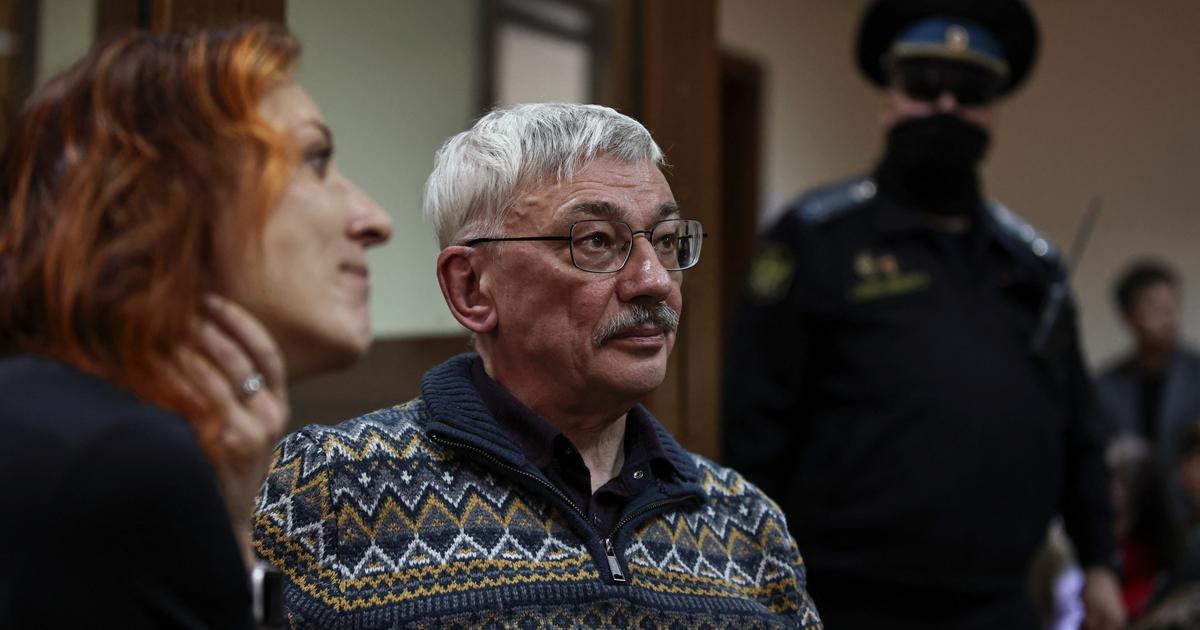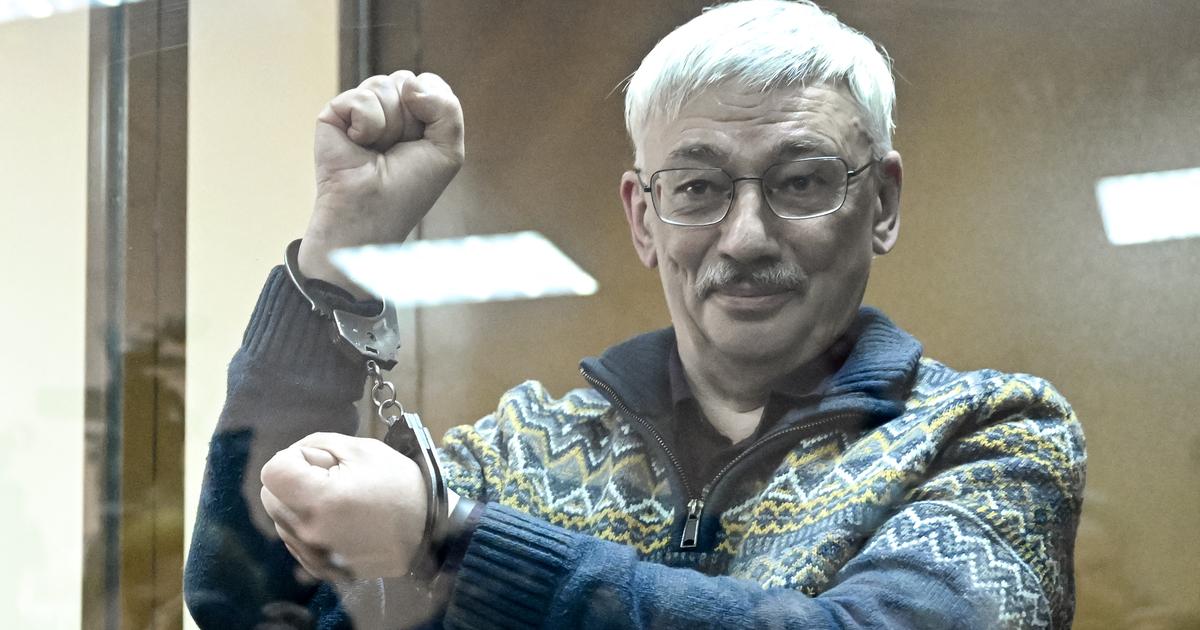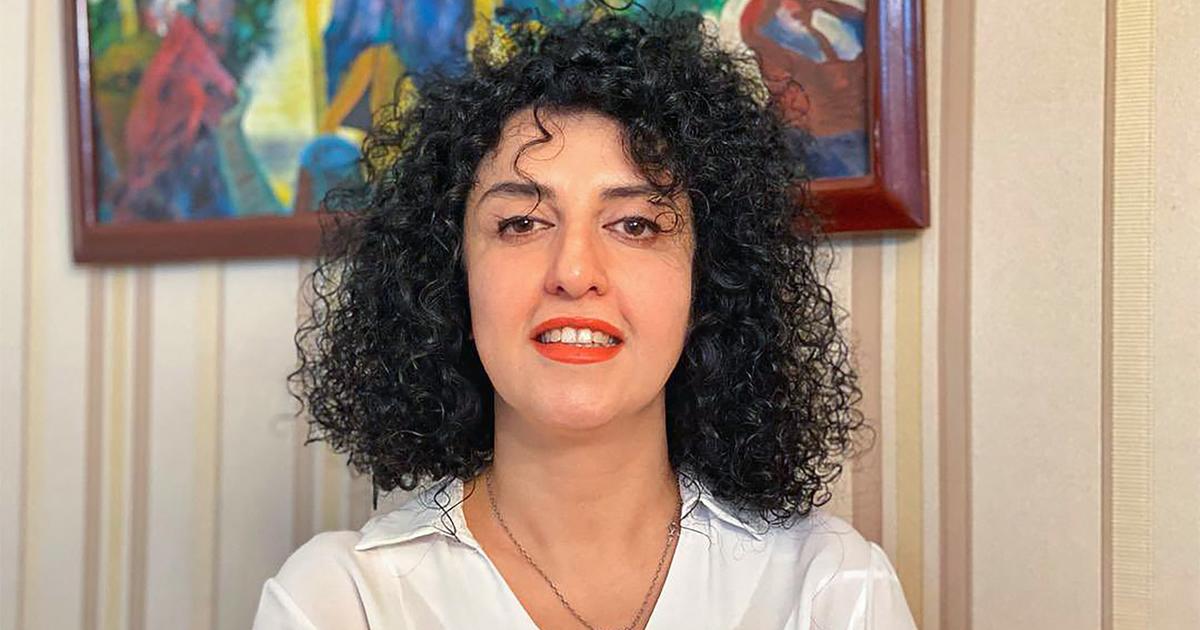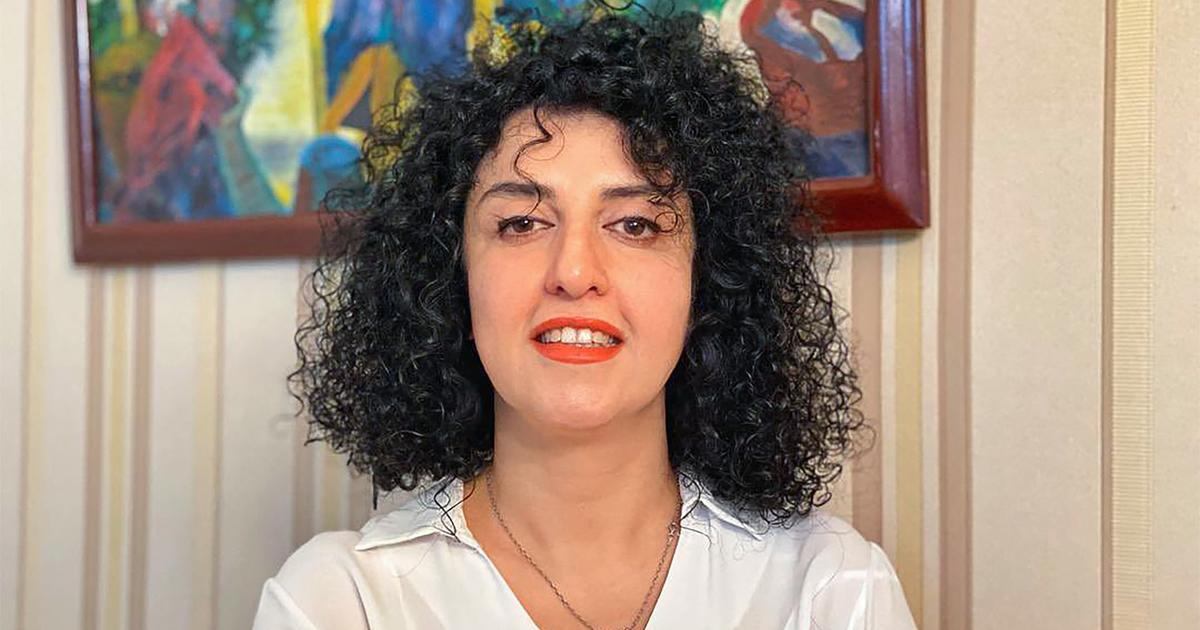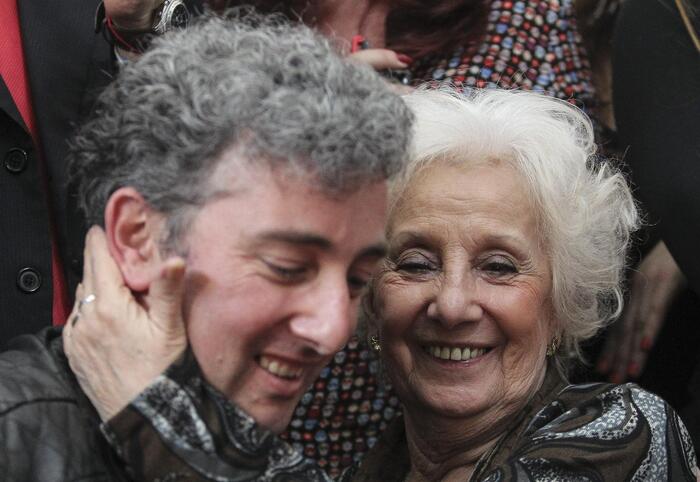Icon: enlarge
This picture of the Iranian lawyer Nasrin Sotoudeh was taken in 2013. She protested the conditions of her detention with a hunger strike this year
Photo: BEHROUZ MEHRI / AFP
There are people who are so committed to other people's lives that they endanger their own lives.
Nasrin Sotoudeh,
for example.
The 57-year-old just survived a hunger strike.
She is in an Iranian prison for demonstrating against the regime and for justice in her country.
Or
Lottie Cummingham Wren
.
She is fighting to ensure that more land is not stolen from the people of her homeland, Nicaragua.
Bryan Stevenson is
fighting against racism in society and criminal law in the USA, and he is campaigning against the death penalty in his country.
And
Ales Bialiatski has been
campaigning for democracy in Belarus for 30 years, a country where President Alexander Lukashenko holds power through electoral fraud and the oppression of opposition members.
This year they have all been awarded the Right Livelihood Award, the Alternative Nobel Prize.
We would like to introduce these four people and what they stand for.
Nasrin Sotoudeh
"Every woman must be able to decide for herself about her body and her clothes."
Wrote
Nasrin Sotoudeh
in SPIEGEL in the summer of 2018.
She was arrested five days later.
Sotoudeh and her husband Resa Chandan are among the most renowned human rights activists in Iran.
Sotoudeh had previously been in custody, in Evin Prison, a notorious torture facility in Tehran.
But this time she was sentenced to 33 years in prison and 148 lashes.
Icon: enlarge
Sentenced to 33 years in prison and 148 lashes: Nasrin Sotoudeh, here in Tehran in 2017
Photo:
Rouzbeh Fouladi / imago images / ZUMA Press
Sentenced for campaigning for the rights of children and women, for dissidents.
The Green politician Omid Nouripour writes in a guest post that Sotoudeh always had to pay a high price for her convictions, and that she stood up for justice at the cost of her life.
Sotoudeh went on a hunger strike to draw attention to the dire detention conditions.
She is not doing well, her husband told SPIEGEL, she weighs less than 47 kilos, is weak, has been moved to an emergency room, but is now back in prison.
He says, "We haven't seen her at all for the past month and a half."
Ales Bialiatski
"Run boy Run!"
At the beginning of August there was an election in Belarus, after which the long-term ruler Alexander Lukashenko once again declared himself the winner.
The EU does not recognize the election, the opposition in the country speaks of massive electoral fraud.
And the people, they have been roaming the streets of Minsk since then, demonstrating for fair elections, for a change of power, against this Lukashenko, who has headed their country for 26 years, has opponents arrested and kidnapped who does not care about democracy.
Who responds to protests with violence.
Ales Bialiatski
has often felt the harshness of the Belarusian power apparatus.
He has been campaigning for democracy and freedom in Belarus since the 1980s; he founded the human rights center Viasna.
That is why he was imprisoned for 1,052 days, and that is why he was attacked.
Bialiatski is part of the Belarusian Coordination Council, founded by civil society and the opposition to achieve a peaceful change of power.
The past few weeks have seen how dangerous this engagement is: many opposition activists have been arrested or kidnapped.
Some are in exile.
On September 27, after 100 days of protest against Lukashenko's election fraud, Bialiatski posted a photo of himself on Facebook: he made a peace sign with his fingers, a white and red flag hangs over his shoulders.
Ever since Lukashenko came to power, she has been the symbol of resistance.
It is a call to persevere, he wrote: "Run, boy, run!"
Bryan Stevenson
"Each of us is more than our worst act."
Wrote
Bryan Stevenson
in his 2015 book, "Without Mercy".
In it he takes apart the violence of the police and the arbitrariness of the judiciary in the USA.
In 2020, after the violent killing of George Floyd, the subject is as current as it was five years ago.
According to Stevenson, the prison system in the USA is based on injustice and serves to give a legal form to a racism that is still present.
Icon: enlarge
Bryan Stevenson: The lawyer fights against racism in the USA
Photo:
Efren Landaos / imago images / ZUMA Press
He takes stock of a country that invokes the spirit of freedom and enlightenment, but where racism often determines which path someone can go and which not.
As a black citizen one is constantly suspected, accused, observed suspiciously, found guilty.
Stevenson documents this injustice.
Stevenson is also campaigning for the abolition of the death penalty with his "Equal Justice Initiative".
He saved more than a hundred death row inmates from execution in the state of Alabama alone, he says: Most of the victims of the US justice system are poor, have poor access to education and are black.
Lottie Cunningham Wren
"The state of Nicaragua is still not doing anything to protect the indigenous people."
Says
Lottie Cunningham Wren
.
The lawyer belongs to the indigenous group Miskito, a people who live on the border between Nicaragua and Honduras, on the Atlantic coast.
The area of around 100,000 Miskito has been devastated by hurricanes on several occasions, but the biggest problem facing Miskito is people.
Icon: enlarge
Action against land grabbing and for the rights of indigenous peoples: Lottie Cummingham Wren (right)
Photo:
BRETT BUTTERSTEIN / AP
Like many others in Latin America, the group is threatened by farmers, some of whom are armed, who are stealing their land, exploiting it and curtailing their living space.
The Nicaraguan state encourages this exploitation by supporting the raw materials industry and thus contributing to the fact that water is scarce and it is difficult to survive in the areas of the indigenous people.
Lottie Cunningham Wren worked out legal principles that indigenous people around the world use to defend themselves.
For Cummingham Wren, protecting indigenous people is closely related to protecting the environment.
She is a champion against the construction of the gigantic Interoceanic Grand Canal, a canal that will connect the Atlantic and Pacific Oceans, financed by China.
The construction would cut through the Miskito areas and destroy ecosystems.
About the Alternative Nobel Prize:
The
Right Livelihood Award
, translated as "Prize for the right way of life", is also known as the Alternative Nobel Prize.
It has been awarded every year in Stockholm, Sweden since 1980, and in 2020 for the 41st time.
He is at a critical distance from the traditional Nobel Prizes.
Prize winners each receive a 750,000 SEK, about 72,000 euros.
About the 2020 award winners, the director of the Livelihood Foundation Ole von Uexküll said they had resisted unjust legal systems and dictatorial political regimes and said: "It is high time that all of us who believe in democracy around the world stand up and support one another. "
In recent years,
the climate activist
Greta Thunberg
, the US whistleblower
Edward Snowden
and the Congolese doctor
Denis Mukwege have received
awards.
Icon: The mirror


